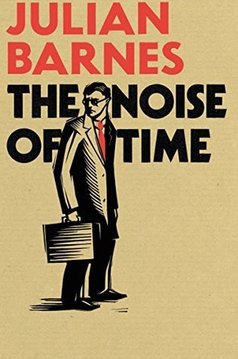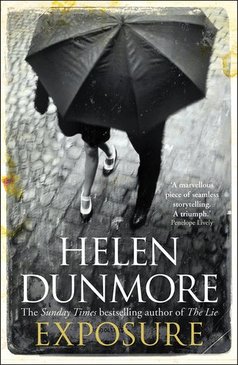The first, set in 1937, finds Shostakovich waiting by the lifts in the Leningrad apartment block where he lives with his wife and baby daughter. After being celebrated throughout the country and beyond, his opera Lady Macbeth of Mtsensk has been condemned following a performance attended by Stalin himself. Barnes shows how the composer’s expectation that he’ll be taken to the Big House and exterminated is not an overreaction. Yet he survives to be sent, in 1948, on a manufactured peace mission to the USA (with echoes of the visit from North Korea in The Orphan Master’s Son) where he delivers ghostwritten speeches in which he condemns himself from his own mouth. Finally, in 1960, when the climate has supposedly thawed under Khrushchev, he’s bullied into joining the Communist Party.
His talent aside, Shostakovich is no hero, but an ordinary man in a nightmare in which heroism often means death, not just for the person themselves, but their entire family and associates, however tenuous the link. Barnes captures perfectly the terror for someone who
would never be loved by Soviet power. He came from the wrong stock … Proletarian purity was as important to the Soviets as Aryan purity was to the Nazis. Further, he had the vanity, or foolishness, to notice and remember that what the Party had said yesterday was often in direct contradiction to what the Party was saying today … They demanded ‘an optimistic Shostakovich’. Even if the world was up to its neck in blood and farm slurry, you were expected to keep a smile on your face. But it was an artist’s nature to be pessimistic and neurotic (p89).
As in the novel Motherland, Barnes highlights the naivety of the supporters of communism in the West, as well as the self-styled supporters of dissidents, who fail to appreciate the consequences of even the tiniest act of rebellion, such as receiving manuscript paper from abroad.
Whatever the author’s intention, it’s hard to read a novel like this without looking for parallels in his own profession. At the opposite pole of the political spectrum, does market-driven publishing and the creative writing industry result in a similar dumbing down in fiction to that experienced by composers under Stalin?
They were determined to break the bourgeois stranglehold on the arts. So workers must be trained to become composers, and all music must be instantly comprehensible and pleasing to the masses … And if the plan to take a worker from the coal face and turn him into a composer of symphonies did not exactly come to pass, something of the reverse happened. A composer was expected to increase his output just as a coal miner was, and his music was expected to warm hearts just as a miner’s coal warmed bodies (p25-26).
While we’re fortunate not to live in a place where a bad review can lead to our extinction, I wondered if the author was taking a dig at book bloggers when he wrote about unqualified critics with the power to extinguish a composer’s career.
The Noise of Time is another short novel that’s well worth your time, whether or not with a soundtrack of music or noise. Thanks to Jonathan Cape for my review copy.
When Simon sees what’s in the file, he panics. But he also holds out a glimmer of hope that this could be his chance to sever his ties with Giles, something he’s been struggling with since settling down and starting a family with Lily. Simon hopes he can hide the file at home until he thinks of what to do. But his wife, on a cleaning blitz, discovers it and buries it in the garden. Not long after, the police come knocking on the door.
Set in London during the Cold War, Exposure marries the drama of Tightrope with the innocence of The Long Room, Simon and Lily the unknowing pawns in a much bigger game. Amid the paranoia, both have pasts that render them vulnerable: Lily, as a former refugee from Nazi Germany, well practised in living in fear; Simon because, in 1960, his past relations with Giles were still illegal. The ordinariness of their life with their three children in Muswell Hill is no protection:
Spies aren’t cloak-and-dagger types at all, not in real life. They’re dull as ditchwater. They keep themselves to themselves, leaving notes for the milkman and take the same bus to work as you do. (p146)
Exposure is about the drive to protect one’s family and the devastating consequences of abruptly finding oneself on the wrong side. Thanks to Hutchinson for my review copy. In case I’ve undersold it – I’m conscious that this isn’t one of my better reviews – I’d also urge you to peruse Kate Clanchy’s review in the Guardian in which she pinpoints the echoes with The Railway Children and the parallels between Giles’s rotting body and the English class system’s moral decay.























 RSS Feed
RSS Feed





















